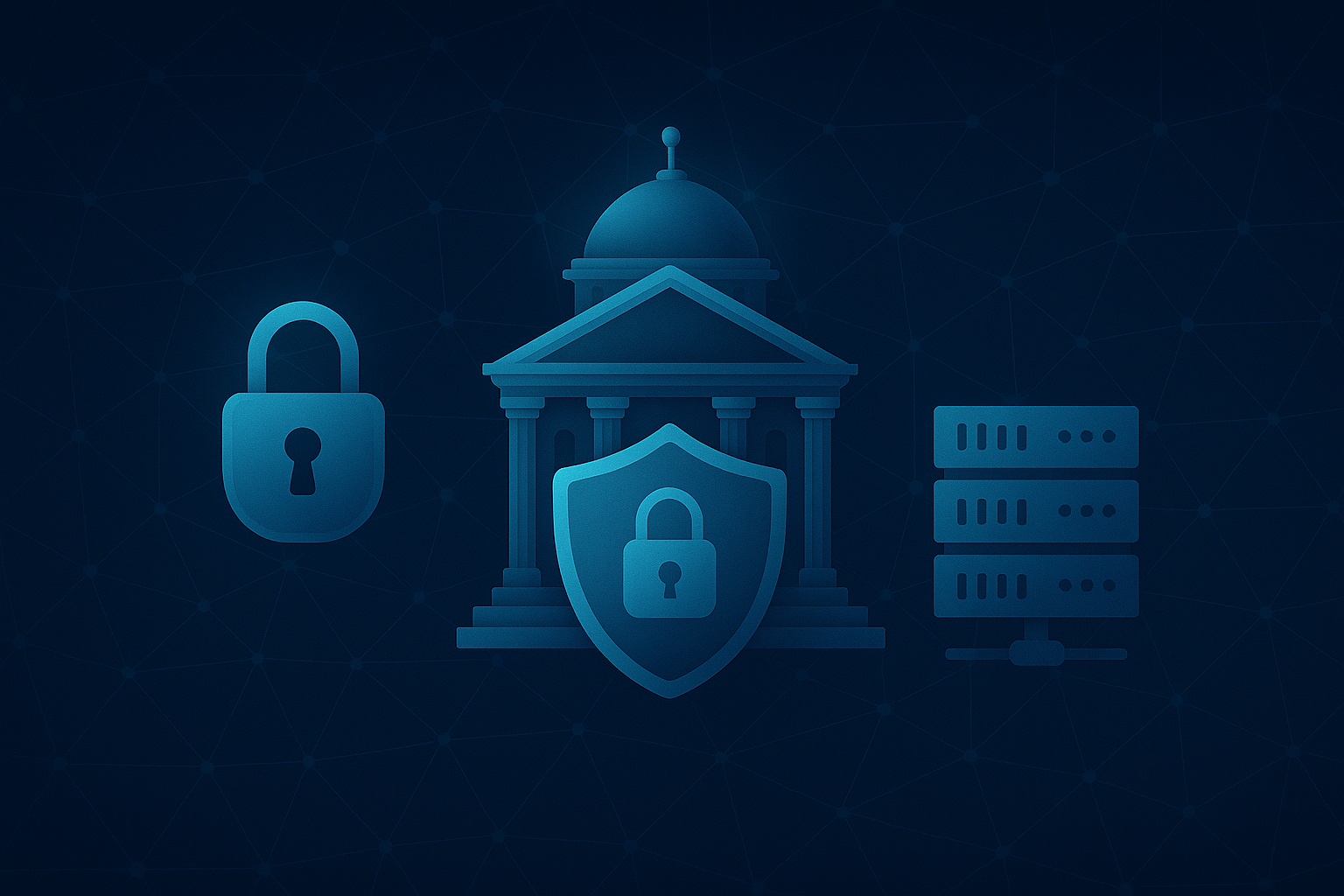Table of Contents
As Namibia continues its digital transformation journey, the country faces both unprecedented opportunities and significant cybersecurity challenges. With increasing internet penetration and adoption of digital services, protecting digital assets has never been more critical for the nation's continued development and prosperity.

Introduction to Cybersecurity in the Namibian Context
Namibia, with its growing digital infrastructure and increasing connectivity, is rapidly becoming integrated into the global digital ecosystem. Government services, banking, telecommunications, and various business operations are increasingly going online, creating a larger digital footprint that requires protection. However, this digital expansion also creates more entry points for potential cyber threats.
According to recent data, internet penetration in Namibia has reached approximately 51% of the population, with mobile phone penetration exceeding 118%, indicating multiple device ownership among many citizens. This widespread connectivity presents both opportunities for economic growth and challenges for cybersecurity.
Current Cybersecurity Landscape in Namibia
The cybersecurity landscape in Namibia is evolving rapidly. Financial institutions, government agencies, and telecommunications companies are increasingly becoming targets for cybercriminals. Recent reports indicate a significant increase in phishing attempts, ransomware attacks, and social engineering schemes targeting Namibian organizations and individuals.
In 2024, several high-profile incidents highlighted the vulnerabilities in Namibia's cyber infrastructure:
- A major ransomware attack affected operations at two financial institutions
- Multiple government websites experienced distributed denial-of-service (DDoS) attacks
- Several data breaches exposed personal information of Namibian citizens
- Increased targeted phishing campaigns against businesses and government offices
Key Challenges and Threats
Namibia faces several unique cybersecurity challenges that require targeted solutions:
Skills Shortage
One of the most pressing issues is the significant shortage of cybersecurity professionals. The country has a limited number of trained experts who can implement and manage advanced security systems, conduct penetration testing, or respond effectively to cyber incidents.
Limited Awareness
Many Namibian businesses and individuals lack awareness about cyber threats and best practices for protection. This knowledge gap makes them particularly vulnerable to social engineering attacks and other threats that exploit human psychology rather than technical vulnerabilities.

Infrastructure Constraints
Limited internet bandwidth, inconsistent power supply in certain areas, and aging IT infrastructure create additional security challenges, making it difficult to implement some modern security solutions that require constant connectivity or significant computing resources.
Regulatory Framework
While Namibia has made progress with legislation like the Electronic Transactions Act, the comprehensive legal framework for cybersecurity is still developing, creating uncertainty for businesses and potential gaps in enforcement.
Common Cyber Threats in Namibia
The most prevalent cyber threats currently facing Namibian organizations include ransomware, business email compromise (BEC), mobile malware, phishing attacks targeting banking credentials, and supply chain attacks affecting critical infrastructure.
Why Cybersecurity Matters for Namibia
Cybersecurity is not merely a technical issue but a fundamental aspect of national development and economic security for Namibia:
Economic Growth and Innovation
A secure digital environment is essential for fostering innovation and economic growth. Foreign investors and partners are increasingly concerned about cybersecurity posture when doing business with Namibian companies. Robust security practices can become a competitive advantage in the global marketplace.
Critical Infrastructure Protection
As Namibia's critical infrastructure—including power grids, water systems, and telecommunications networks—becomes more digitized and interconnected, protecting these systems from cyber attacks becomes crucial for national security and public safety.
Digital Inclusion and Trust
For Namibia to fully realize the benefits of digital transformation, citizens must trust digital systems and services. Frequent security breaches or cyber incidents can erode this trust, potentially slowing adoption of e-government services, digital banking, and e-commerce platforms.
Government Initiatives and Policies
The Namibian government has recognized the importance of cybersecurity and has initiated several important measures:
- National Cybersecurity Strategy (2023-2028) - A comprehensive framework outlining the country's approach to cybersecurity, including critical infrastructure protection, international cooperation, and capacity building
- Computer Security Incident Response Team (CSIRT) - Establishment of a national CSIRT to coordinate responses to major cyber incidents
- Data Protection Legislation - Development of new data protection laws aligned with international standards like the EU's GDPR
- Public-Private Partnerships - Initiatives to foster collaboration between government agencies and private sector entities on cybersecurity issues

While these initiatives represent significant progress, implementation challenges remain, particularly regarding funding, coordination between various stakeholders, and alignment with regional and international frameworks.
Practical Solutions for Namibian Businesses
Namibian organizations can take several practical steps to enhance their cybersecurity posture, even with limited resources:
Risk-Based Approach
Implementing a risk-based approach to cybersecurity helps organizations prioritize their security investments based on their specific threat landscape and business requirements. This approach ensures that limited resources are allocated to protecting the most critical assets.
Security Awareness Training
Regular security awareness training for all employees can significantly reduce the risk of successful social engineering attacks. This training should be contextual, addressing the specific threats faced by Namibian organizations and individuals.
Basic Security Hygiene
Implementing basic security measures consistently can provide substantial protection against common threats:
- Regular software updates and patch management
- Strong password policies and multi-factor authentication
- Regular data backups stored offline or in secure cloud environments
- Network segmentation to contain potential breaches
- Endpoint protection on all devices accessing company resources
Cybersecurity on a Budget
Even with limited resources, organizations can improve their security posture by focusing on employee training, implementing free or low-cost security tools, participating in information-sharing communities, and developing clear incident response procedures.
Collaborative Security
Joining industry-specific security groups and information-sharing networks can help organizations stay informed about emerging threats and best practices. Collaboration with peers can multiply the effectiveness of individual security efforts.
The Future of Cybersecurity in Namibia
Looking ahead, several trends will shape the cybersecurity landscape in Namibia:
Localized Solutions
The development of cybersecurity solutions tailored to Namibia's specific context and challenges will become increasingly important. These solutions should consider local infrastructure limitations, threat landscape, and regulatory requirements.
Capacity Building
Addressing the skills shortage will require sustained investment in cybersecurity education and training. Partnerships with international organizations and academic institutions can accelerate this process.

Regional Cooperation
Enhanced cooperation with other African nations on cybersecurity issues will become increasingly important. Regional approaches to cybercrime investigation, information sharing, and capacity building can multiply the effectiveness of national efforts.
AI and Automation
As cybersecurity skills remain scarce, leveraging artificial intelligence and automation to enhance detection and response capabilities will become essential for Namibian organizations.
The cybersecurity journey for Namibia is just beginning, but with the right approach, partnerships, and investments, the country can build a secure digital foundation that enables rather than hinders its development ambitions.


